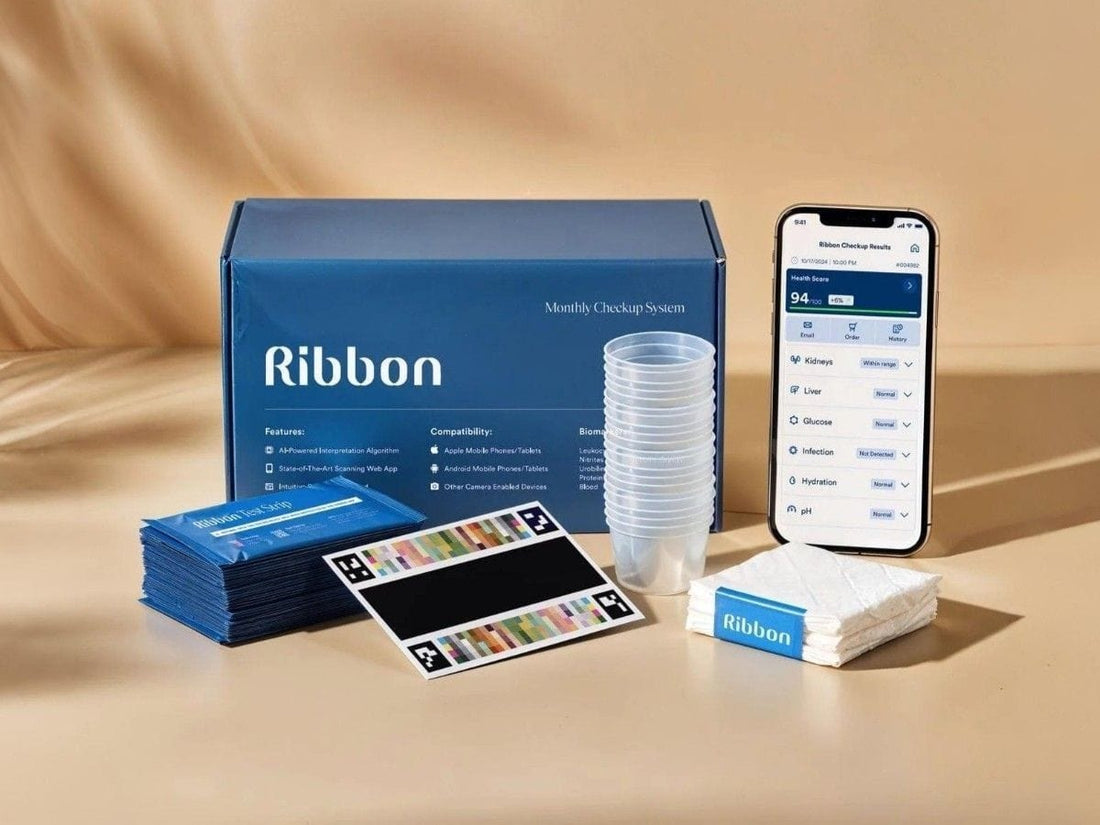Ribbon Checkup accuracy: How reliable are at-home liver and metabolic tests?
 Written By
Abel Tamirat, MD
Written By
Abel Tamirat, MD

If you’re considering an at-home health test, accuracy is probably your number one concern. You may be asking: “Can I really trust Ribbon Checkup’s results compared to a doctor’s office or hospital lab?”
The short answer is: yes. Ribbon Checkup tests use clinically validated methods, CLIA-certified labs, and physician-reviewed processes to ensure results are as accurate as traditional laboratory testing.
In this article, we’ll explain how Ribbon Checkup maintains medical accuracy, how our tests compare to standard blood draws, what safeguards we use, and why thousands of people trust us to monitor their liver and metabolic health.
What does “accuracy” mean in medical testing?
When it comes to lab testing, accuracy isn’t just about numbers matching—it refers to whether a test measures the right thing, at the right level, every time.
Accuracy depends on:
-
Sensitivity: How well the test detects a condition when it’s present.
-
Specificity: How well the test rules out a condition when it’s not present.
-
Reproducibility: Whether the test gives consistent results under the same conditions.
Ribbon Checkup’s accuracy is built around these standards.
Learn more about liver test reliability in Home Liver Test: Guide to At-Home Liver Function Kits, Accuracy, Costs, and Health Monitoring.
How does Ribbon Checkup ensure accuracy?

-
Certified labs: All tests are processed in CLIA- and CAP-certified labs (the same accreditation as hospital labs).
-
Validated biomarkers: Each test uses evidence-based biomarkers for liver and metabolic health, reviewed against global medical guidelines.
-
Quality controls: Labs run internal checks and calibration samples with every batch.
-
Physician oversight: Every result is reviewed by a licensed physician before release.
-
User-friendly collection kits: Designed to reduce errors with clear step-by-step instructions.
Curious how capillary testing works? Read Blood Sugar Test Kit: A Complete Guide.
How do Ribbon Checkup results compare to traditional lab tests?

|
Factor |
Ribbon Checkup (at-home) |
Traditional lab |
|
Sample collection |
Finger-prick capillary blood |
Venous blood draw |
|
Lab certification |
CLIA- & CAP-certified |
CLIA- & CAP-certified |
|
Accuracy |
Comparable for validated biomarkers |
Gold standard |
|
Convenience |
At home, mailed kit |
In-person appointment |
|
Physician review |
Included |
Included |
For most liver and metabolic biomarkers (like ALT, AST, ALP, glucose, HbA1c, cholesterol), Ribbon Checkup provides results comparable to standard venous testing.
See a direct comparison in Ribbon Checkup vs. Traditional Labs: Which Is Better for Your Health Routine?.
Independent validation and research

-
Internal audits: Ribbon Checkup tests undergo quarterly validation against hospital lab benchmarks.
-
Peer-reviewed evidence: testing has been validated in multiple studies as a reliable alternative for common biomarkers.
-
Ongoing quality assurance: Ribbon Checkup continuously reviews medical literature and updates methods to ensure evidence-based practice.
For an overview of the product, check Ribbon Checkup Urine Test: Simple At-Home Health Tracking.
Final thoughts
So, how accurate is Ribbon Checkup? The answer is: very accurate—comparable to traditional lab testing for validated biomarkers. By combining certified labs, physician oversight, and evidence-based methods, Ribbon Checkup ensures you can trust your results while enjoying the convenience of at-home testing.
Ready to get started? Explore Ribbon Checkup’s at-home liver and metabolic health tests and take charge of your health with confidence.
Related Resources
-
Does Stress Cause Elevated Liver Enzymes? Exploring the Connection
- UTI Tests: The Essential Guide to Understanding and Managing Your Health
References
-
Centers for Disease Control and Prevention (CDC). (2024). Laboratory quality and certification.
-
Clinical Laboratory Improvement Amendments (CLIA). (2023). Federal certification standards.
-
Mayo Clinic. (2023). Blood tests: What to expect.
-
WHO. (2022). Diagnostics and laboratory guidance.
-
Ribbon Checkup internal validation studies (2024).

Dr. Abel Tamirat is a licensed General Practitioner and ECFMG-certified international medical graduate with over three years of experience supporting U.S.-based telehealth and primary care practices. As a freelance medical writer and Virtual Clinical Support Specialist, he blends frontline clinical expertise with a passion for health technology and evidence-based content. He is also a contributor to Continuing Medical Education (CME) programs.



